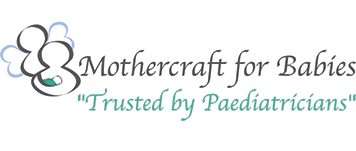Fast Facts – Eczema and Food Allergies
It can be a challenging journey for Mums and Dads caring for babies and toddlers with diagnosed eczema. This skin condition often impacts their sleep patterns and routines ( not in a good way!) and needs to be factored in when the time comes to introduce additional nutrition to their diet for healthy growth and development.
Here are the latest “Fast Facts” on Eczema and Food Allergies from ASCIA (Australasian Society of Clinical Immunology and Allergy). This is the peak professional body in Australia/NZ providing evidence based advice on allergy prevention for infants and children.
I use the ASCIA advice as a basis for my Tip Sheet with a step-by-step guide on the “when, what and how” to introduce additional nutrition/solids to babies and toddlers and how to recognise when the time is right.
- Food allergy may trigger an eczema episode (occasionally) but is not the cause of eczema.
- Eczema can be well managed by maintaining, protecting and treating the skin by:
- Applying moisturiser at least twice a day (avoiding those that contain food products).
- Using a non-soap based wash or oil in the bath or shower.
- Avoiding soap and washes that produce bubbles or foam, which damage and dry out the skin.
- Avoiding known triggers (including foods if confirmed) and irritants.
- Using anti-inflammatory creams and ointments, such as topical steroids.
- Treating bacterial skin infections with antibiotics, or using bleach baths if infections are frequent.
- Using immune modulating treatments, if prescribed for severe eczema.
- Food allergy is more common in infants with eczema and a family history of allergy.
- There is some evidence that managing eczema well during infancy may reduce the chance of an infant developing a food allergy.
- Food exclusion diets should only be tried in children with eczema that does not improve with the management skin treatments as first directed by your specialist.
- Taking foods out of a child’s diet without the right substitutes can cause malnutrition and poor growth. If a food exclusion diet is prescribed then it’s important to have this supervised by an allergy specialist and potentially a paediatric dietician.



